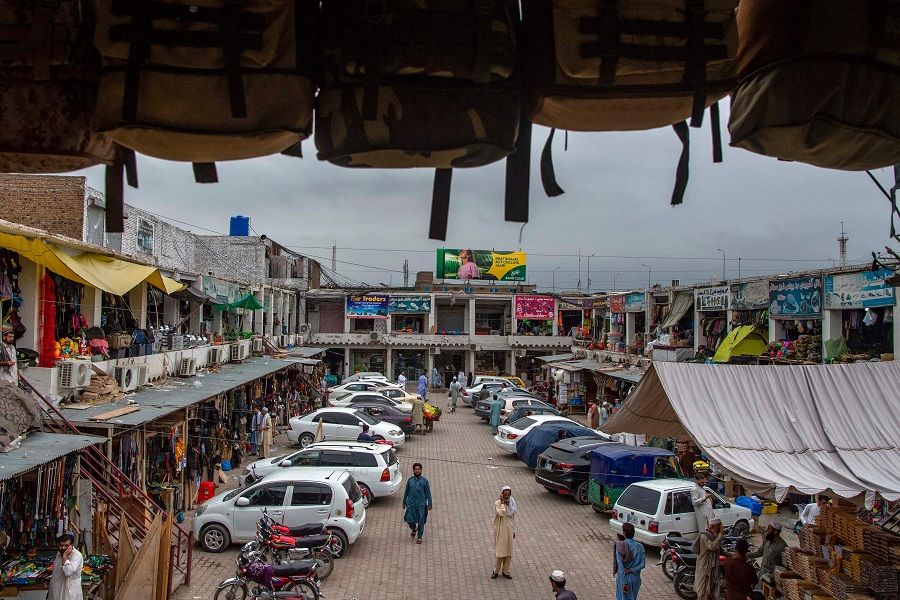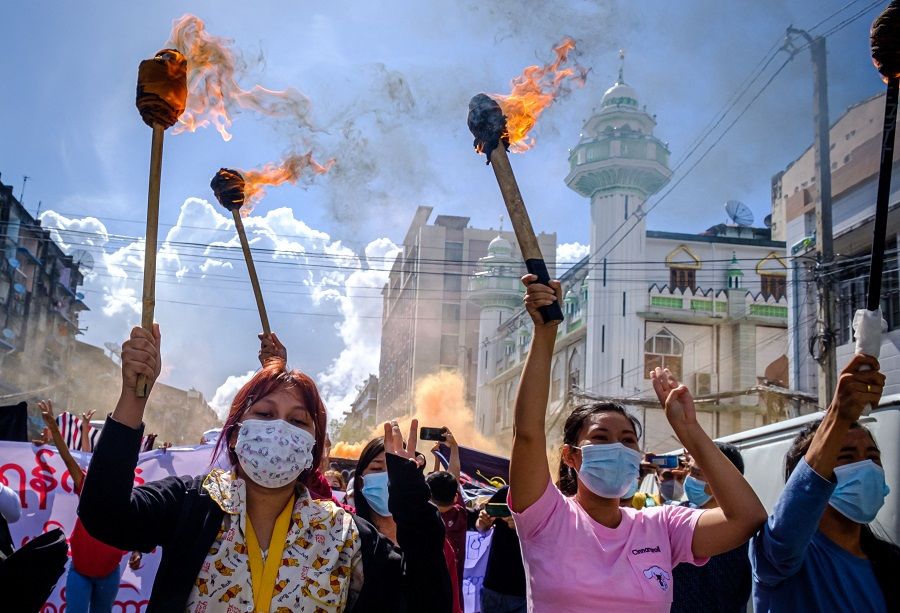Chinese researcher: How to protect the BRI and keep Chinese enterprises overseas safe

On 14 July in the Pakistani province of Khyber Pakhtunkhwa, an explosion occurred on a bus enroute to the construction site of the Dasu Hydropower Project run by China Gezhouba Group Corp. The blast killed nine Chinese and four Pakistanis. Analysts generally believe that this attack was carried out by a terrorist organisation.
On 17 July, three Chinese construction workers were kidnapped in Mali. Coupled with the attacks on Chinese-funded factories in Myanmar in March, the safety level of Chinese enterprises overseas is flashing a red alert.
Actually, Chinese enterprises and individuals have time and again been targeted in Africa, Central Asia, South Asia, Southeast Asia and Latin America where China's Belt and Road Initiative (BRI) projects are underway, becoming victims of smash-and-grabs, hijacks and attacks. These incidents have raised major concerns about the safety of overseas-based Chinese enterprises.
The attacks not only negatively affects the relationship between China and the countries of the BRI but also provides major opportunities for Western countries to discredit China and interfere with the BRI. Thus, comprehensively improving the security of Chinese enterprises overseas, protecting the BRI and maintaining friendly relations with BRI countries are pressing matters.
Chinese enterprises overseas need more situational awareness
Firstly, increasing safety awareness. In recent years, Western media has spared no effort in discrediting Chinese enterprises and projects. In particular, they are using new channels such as non-governmental organisations and social media to accuse Chinese investment projects of damaging the local ecosystem and creating a debt trap for the country. They intentionally incite anti-China sentiments in the country, interfere with and even disrupt the implementation of Chinese projects.

Take for example the current round of attacks on Chinese enterprises in Pakistan. Regardless of whether the attack was carried out by the Balochistan Liberation Army or the Pakistani Taliban (Tehrik-i-Taliban Pakistan, TTP), it is certain that they are against Chinese investment projects in Pakistan, in particular the China-Pakistan Economic Corridor that runs along Balochistan and Khyber Pakhtunkhwa. The Balochistan Liberation Army thinks that this economic corridor is not only unable to bring great benefits to the local region, but will instead strengthen the Pakistani government's control over the region.
On the other hand, the TTP is dissatisfied with how the Chinese government handled the Xinjiang issue. Besides, the TTP itself is inextricably linked with the ethnic separatist forces in Xinjiang. Therefore, many analysts believe that the current round of attacks is a harsh warning to China from ethnic separatist organisations and terrorist groups.
Chinese enterprises are clearly not vigilant enough amid these dangers.
Before Chinese enterprises were damaged and looted by Myanmar criminals, a London-based non-governmental organisation threatened that "one Chinese factory will become ashes" if "one civilian [is] killed" on local social media in Myanmar.
Since the Myanmar military seized power in a coup, Western media has been spreading rumours that China blocked a UN Security Council statement condemning the military coup in Myanmar, and was sending a large amount of arms to help the Myanmar military suppress the protestors. They did this in a bid to shift the Myanmar people's unhappiness with the military to China and ruin friendly relations between the two sides. Chinese enterprises are clearly not vigilant enough amid these dangers.
It is obvious that terrorist groups must have done their homework and learnt about the bus schedules in order to pull off the bus blast targeted at a Chinese enterprise in Pakistan.

And as Chinese enterprises were not fully prepared to deal with rising anti-China sentiment in Myanmar society, they could only remind everyone to take fire safety precautions and self-rescue measures after the attack took place, demonstrating their severe lack of safety awareness.
Evidently, in places where there is a high volume of high-profile Chinese investments, a history of anti-China sentiment, as well as Western attention, the Chinese embassy and business associations should raise their awareness of security risks and keep track of latest developments in the local communities and the media (including social media). They should then send out timely warnings and reminders to Chinese enterprises so that the latter can take the necessary measures in advance. At the same time, the Chinese government should assist large state-owned enterprises or powerful private enterprises (such as Huawei) to expand their foreign investment risk consulting teams so that they may have access to high-quality risk warning services through commercial avenues.
A security team with a certain level of defence capabilities could be set up to effectively safeguard corporate assets and protect employees.
Proactive self-protection measures would be useful
Secondly, strengthening self-protection measures. Following years of trial and error in foreign markets, overseas Chinese enterprises generally know how to protect themselves. But most of their measures are passive - either suspending operations or asking employees to not go anywhere. These measures have failed to stop the barbaric actions of criminals or terrorist attack atrocities and instead emboldened them to specifically target Chinese enterprises and Chinese workers.
Chinese enterprises with the means to do so should hire professional security guards and equip them with self-defence equipment within what is legally permissible in their host countries. A security team with a certain level of defence capabilities could be set up to effectively safeguard corporate assets and protect employees. At the same time, drawing from the experience of advanced European and American countries, policy support could be given to mature overseas security firms with a strong presence in China. Such collaboration can help to expand and strengthen China's overseas security industrial chain, and provide professional security services to foreign investments of Chinese enterprises.
Chinese embassies, business associations and other organisations based overseas can consider stablishing an extrication mechanism to blacklist errant Chinese enterprises and help them to rectify their misdeeds. If the companies continue to err, they must be made to leave the host country.

Team China abroad
Thirdly, establishing a multi-party response system. At present, whenever Chinese enterprises overseas are attacked, they are mostly attended to by Chinese embassies overseas. But embassy staff have limited capacity and are often overwhelmed. Thus, apart from Chinese embassies abroad, local Chinese business associations (including local business associations) and other industry organisations, as well as larger Chinese enterprises and even overseas Chinese groups could be mobilised or approached for assistance. In addition, making a habit of relying on the local government and favourable forces towards China would help to minimise the economic losses of Chinese enterprises and negative impacts on bilateral relations.
Fourthly, establishing a mechanism for Chinese enterprises to extricate themselves from their foreign investments. Following the rapid advancement of the BRI, an increasing number of Chinese enterprises are investing and building factories overseas, in turn boosting local economic and social development. However, among these enterprises are substandard ones that are not socially responsible and who destroy the local environment and engage in illegal activities. Such behaviour tarnishes the reputation of Chinese enterprises and angers the local people who then smash, loot, and even launch terrorist attacks on Chinese enterprises.
Thus, Chinese embassies, business associations and other organisations based overseas can consider stablishing an extrication mechanism to blacklist errant Chinese enterprises and help them to rectify their misdeeds. If the companies continue to err, they must be made to leave the host country. In this way, the positive image of law-abiding Chinese enterprises that bring jobs and benefits to the people of the host country can be maintained. At the same time, activities involving Chinese enterprises and the local community can be organised to dispel misunderstandings of Chinese enterprises and to build trust.
